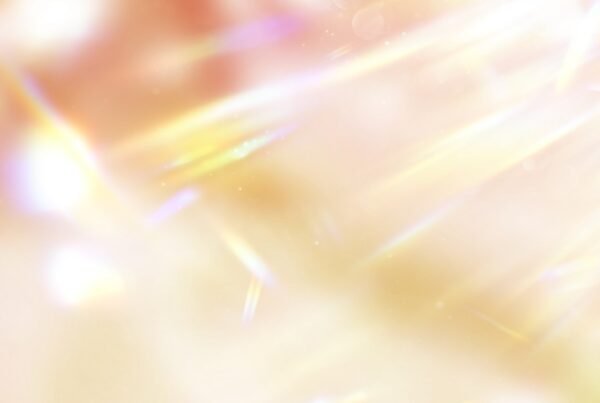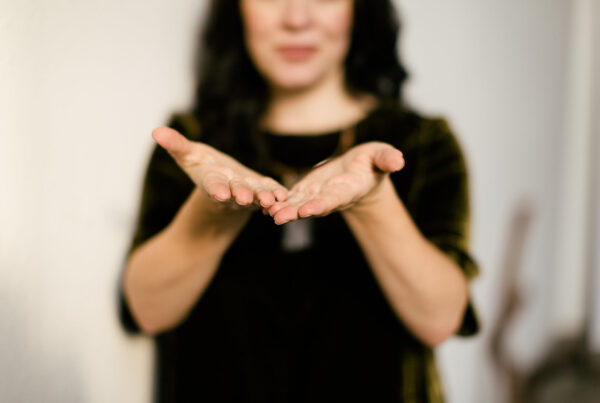There’s a fascinating study about creativity and child development in which adults introduce a new toy to children in two different ways.
In the first scenario, the adult introduces the new toy to a child and explains that they (the adult) know how to use the toy, and that they are going to teach the child to use it.
In the second scenario, the adult acts more naïve – “I just found this! I wonder how it works?” They give no explanation to the child about what it is.
Guess what happens?
Children in the second scenario – those who weren’t told how to use the toy – show more interest in the toy and explore it for more time. It is more engrossing because on their own, they get to figure out what it’s for and how it is to be used, engaging their curiosity, their problem-solving instincts, and their imagination.
So with my son, more and more, when we encounter a new object or toy, I try to ask the question, “Hmmm, what could this be for?” It’s amazing to watch how this question generates his creativity and suddenly awakens his energy.
Today I want to talk about this idea not in terms of toys or child development, but in terms of how it might apply to us, the grown ups.
When we encounter a new experience or relationship, does the inner adult inside of us say, “I know what to do with this. I know what this is and how it works.”
Or, does the inner adult in us say, “Wow, what’s this!? I wonder what it is. I wonder how it works. I wonder what it could be for.”
Of course, we don’t have bandwidth to encounter every moment of our days this way. But we do all have the time and energy – and, I’d argue, spiritual and emotional need – to bring this stance to at least a few of the moments in each day. And we can be so helped by bringing those questions to the tough challenges in our lives, the important junctures, the events that don’t seem to make sense, and to relationships new and old.
“Wow, what’s this?” and “I wonder how it will work?” are powerful questions to ask of our experiences. They spark curiosity and creativity and help us live in the present. This is all good. But for me the most powerful question to ask of my experiences is that third one: “I wonder, what could this be for?”
What could this be for?
By the time we reach adulthood, we’ve all developed a lot of beliefs about what various experiences are for.
This is going to the bank and it is for making a deposit or getting some cash.
This is going to the gym and it’s for exercise.
This is a friendship and it’s for fun, and advice, and support.
This is arguing with my partner about money and it’s for making sure we don’t end up in financial trouble.
You might complete these sentences differently than I just have but, the point is, you’d know how you want to complete them because you’ve got ideas about what all these experiences are for.
Those ideas help us cope with uncertainty and get through our days without cognitive and emotional overload. But, they also create a kind of fog that prevents us from seeing the freshness, the possibilities, and the hidden curriculum that lies within our experiences.
My son is starting preschool. There are obvious answers – conditioned ones – about what that experience is for, for him and for our family.
But if I ask with wonder and humility, “What might this be for?” and then really pay attention – to what the experience is bringing forth in him and in each member of our family – I start to see things differently. I get some hints of interesting answers. I start to see that this experience is causing each of us to grow in some very specific ways.
If you started to ask this question of what is happening in your life right now, what might you see?
Maybe arguing with your partner about money today is for learning one more time what hurts so much about arguing, to get closer to being willing to communicate in a new way. Or maybe it is for feeling again the pain of a childhood relationship dynamic around money, so that you can heal it. Or maybe it’s clarifying your own values around your financial life.
Maybe this unfortunate chilling in a relationship with a friend is to learn the power of being more honest, and to practice speaking a truth, or to experience what happens when you let your guard down. Or maybe it is for you to learn what you can and can’t change.
What could this be for?
What could this (pain, suffering, learning, challenge, new experience, mundane experience, happy experience) be for in my healing, or someone else’s? What could this be for in terms of connection, learning, forgiveness, growth?
In other words: what could this be for, in its sacred purpose?
I believe this: the experience of our lives is the “text.” But there is always rich subtext, which is everything going on beneath the surface level of the experience, and beyond the conventional labels we’ve been trained to put on that experience.
Beneath the surface level is the level in which all experience is curriculum for evolution, for learning forgiveness, for discovering how deep reality works, for remembering the truth of who we are.
You can sink beneath the text of your experience.
You can open to learning the deeper curriculum it carries.
Whatever is happening, you can ask – with wonder, with humility, with devotion to seeing the good that can come from anything, “What could this be for?”
Love,
Tara
photo credit: Mark Kamalov








Excellent article. For someone who thinks and feels a lot at all times, I find this a refreshing question to ask myself. It is inspiring and adds whimsy and wonder where there might usually be a reflex to jump into the stagnant waters of heavy, gloom and doom conclusions. All of that programmed, negative reactiveness rather than the possibility to take flight into the light of new horizons.
Thank you, as always, for your natural, authentic wisdom that never feels like recycled words of others, and always feels empowering and highly inspiring.